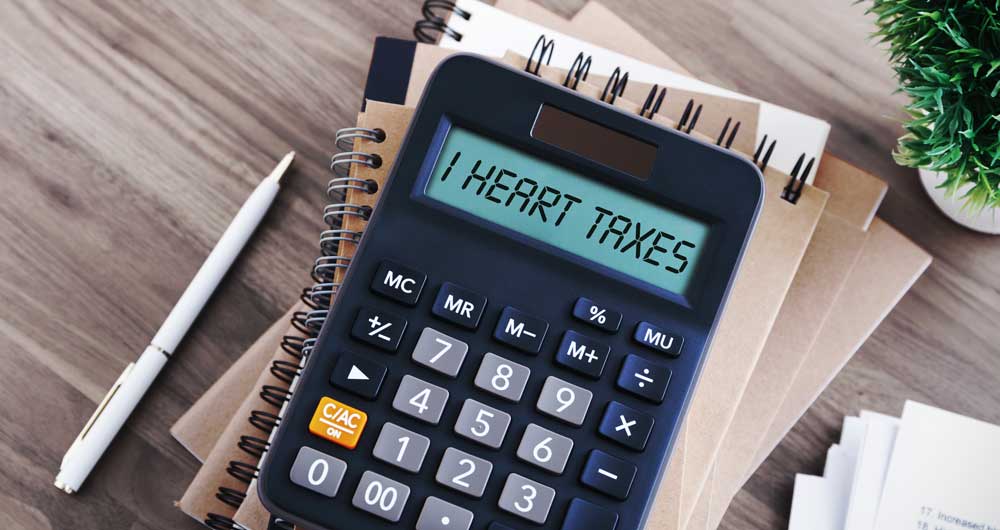
You run your own business and want to pay the least amount in taxes, so what’s the smart way to pay yourself?
The goal is to keep the biggest slice of pie for yourself. The best way to do that depends on your business type, whether your business is a sole proprietorship or a corporation.
Your Business Structure
Sole Proprietor
As a sole proprietor, you are your business. You can’t be an employee of the business, which means you can’t draw a wage from your business. There’s no way to defer taxes by leaving money “in the business”. The business income and expenses are recorded as an additional schedule on your personal taxes, and all your income is taxed together.
Having said that, I do recommend keeping the business money separate from your personal money. Make sure to open a business bank account to help with this separation (read this to find out why: https://www.kirkcpa.ca/do-you-need-a-business-bank-account/).
How do you pay your personal expenses? Don’t do it from the business bank account. Transfer the money from your business account to your personal account and pay your personal expenses from there.
*Pro tip, these transfers to your personal account don’t count as expenses for your business.
Corporation
Paying yourself from a corporation is little more complicated because it’s a separate legal entity. I mean, logistically it’s the same in that you can transfer money from your business to your personal account, but the corporation will have to classify that payment as either dividends or salary (for the purposes of this explanation we’ll treat salaries and bonuses as the same thing).
The biggest difference between the two methods is a salary is tax deductible for the corporation and dividends are paid out of after-tax income.
What does that mean?
A corporation is a separate legal entity from its owner(s) (known as shareholders). As a separate legal entity, the corporation is responsible for paying taxes on its income. If a salary is paid out to an employee, the corporation can deduct it from revenue before calculating taxes.
The salary is then taxable for the individual. This bit isn’t news. Most of us have worked for someone else, where we’ve been paid a wage that we needed to pay taxes on.
Paying a wage seems like the better option because you only pay tax once – on your personal taxes. Payroll has its downfalls though. It’s administratively more work because the corporation needs to deduct income taxes and CPP from the salary (just like if you worked for someone else), match the CPP contribution, and remit it to the CRA every month. It can also be more expensive because CPP isn’t paid on dividends, so if the CPP is more than the corporate tax bill it might not be worth it.
Dividends
Dividends are not tax deductible for the corporation, so the money paid out has already been taxed at the corporate level. You might be thinking “sweet, if tax has already been paid, does that mean it’s tax free for me to withdraw?” Nope, unfortunately not. You still need to pay personal tax on dividends, which means you’re effectively paying tax twice.
So why would you take dividends? For you as an individual, dividends are taxed at a lower rate than a salary. Sometimes paying tax at the corporate level (usually lower than paying at the individual level) plus paying the lower individual tax rate on dividends is actually less than the individual tax rate on a salary.
Let’s recap
|
Salary |
Dividends |
|
Tax deductible for the corporation |
Not tax deductible – paid out of after tax income |
|
Monthly remittances of income tax and CPP deductions |
No remittances |
|
Taxed at a higher rate for the individual |
Taxed at a lower rate for the individual |
|
Corporation has a portion of CPP to pay |
No CPP payments (which means no CPP withdrawal later in life) |
|
Increases your RRSP contribution room |
No impact on RRSP contribution room |
|
More conventional personal income so it’s easier to get personal loans |
Tougher to get personal loans (like mortgages) with only dividend income |
|
More formal process for getting money into the hands of the individual |
Simple transfer between bank accounts |
Which one should you choose?
As with every question asked to an accountant – it depends. Your specific situation will determine the best way to pay yourself from a corporation. If you have another source of employment income, maybe dividends are the way to go. If the corporation is your only income, maybe you pay yourself a salary of $60k and switch to dividends after maxing out your CPP contributions for the year.
To make the choice, it’s important to calculate the total tax (corporate and individual) payable for a few different scenarios to see which one is the best fit for you. If you’re doing these calculations on your own, I would revisit your strategy every year to ensure you always have the best fit for your changing situation.
If you’d like help with this calculation, let’s chat! You can get in touch with me here: Contact




